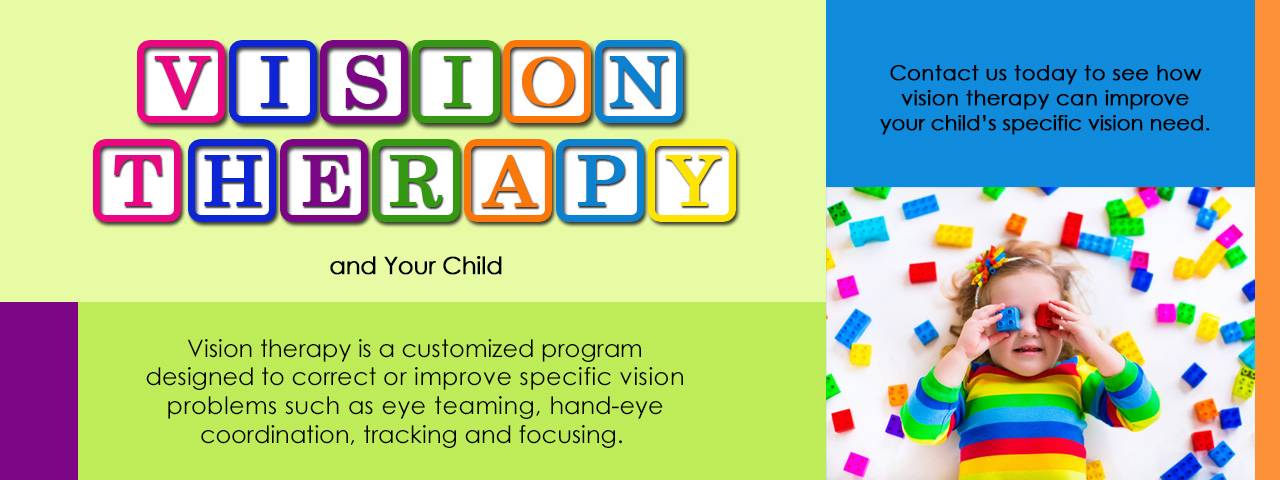
What is Vision Therapy? Vision Therapy (also known as vision training) involves exercises which are aimed at improving visual skills such as, eye teaming, binocular coordination and depth perception, focusing, acuity (clarity of sight), and "hand-eye" or "vision-body" coordination.
Optometric vision therapy is an approved treatment modality for disorders including, but not limited to:
- ocular motility dysfunction/eye movement disorders
- vergence dysfunction/inefficiency in using both eyes together
- strabismus/misalignment of the eyes
- amblyopia/lazy eye
- accommodative disorders/focusing problems
- visual information processing disorders
- visual sensory and motor integration
- visual rehabilitation after traumatic brain injury or stroke all of which result in inefficient visual information processing.
Optometric vision therapy can improve visual functions much like physical therapy can improve general motor function. Vision therapy typically involves a series of treatments during which carefully planned activities are carried out by the patient under the doctor's supervision in order to relieve the visual problem. The specific procedures and instrumentation utilized are determined by the nature and severity of the diagnosed condition. Vision therapy is not instituted to simply strengthen eye muscles, but rather is generally done to treat functional deficiencies in order for the patient to achieve optimal efficiency and comfort. The treatment may appear to be relatively uncomplicated, such as patching an eye as part of amblyopia therapy or, it may require complex infrared sensing devices and computers which monitor eye position and provide feedback to the patient to reduce the uncontrolled jumping of an eye with nystagmus. Treatment of strabismus can involve complex optical and electronic instruments or such simple devices as a penlight or a mirror. The particular procedures and instruments are dependent on the nature of the visual dysfunction and Shore Family Eyecare's clinical judgement.
What are the benefits Vision Therapy?
The goals of the prescribed treatment regimen are to alleviate the signs and symptoms, achieve desired visual outcomes, meet the patient's needs and improve your quality of life. The benefits of optometric vision therapy, which include improved visual information processing and the ability to sustain visual function over time, are as applicable to the child in the classroom as they are to the adult using a computer or reading a book. Without efficient visual skills the act of reading can be frustrating. Some of the common symptoms relieved through vision therapy include eye strain, visually induced headaches, the inability to concentrate when doing visual tasks and errors such as loss of place or reversals.
Optometric vision therapy also facilitates appropriate visual development, and serves as a component of the multi-disciplinary effort follow stroke or head injury.
After a thorough evaluation an individual program of visual therapy is designed to deal with the source of your individual needs. In most cases an intensive program is developed combining in office and at home activities is prescribed. At Shore Family Eyecare, we offer computerized programs as well as working with lenses, prisms, filters and other equipment. We will create a personalized program right for you.
For Parents and Teachers for more information about vision therapy and children check our Vision Checklists for Children
